


Your claim is on the verge of FAILURE!
Your next step is critical to receiving a FAIR Settlement...
Choosing Poorly Can be Worse than where you are now.
What's Fair? An amount that is enough to Restore Your Home to AT LEAST PRE-LOSS CONDITION!
Can an Appraisal get you there? YES, with the right appraiser.
Does it matter who you hire? YES!
Watchout! There are NO licensed appraisers and many are not great.
Why me? Professional, Certified, Skilled, Knowledgeable, Responsive, Ethical, Honest, and Fair.
I create a Plan of Action for each Appraisal Client
Don’t fall prey to Appraisers that wing it
The best appraisers can tell you what the objections will be by the carrier's appraiser and how they plan to overcome them.
Who you hire as your appraiser is likely to be the difference between getting a fair award and NOT.

PLAN Certified Property Loss Appraiser (CPLA)
IAUA Certified Property Insurance Appraiser (CPIA)
PLAN Certified Property Loss Umpire (CPLU)
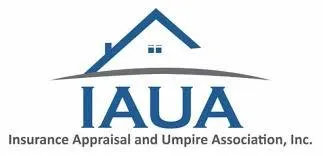
Organizations You Can Trust
Certifications that Mean Something!
Small Call to Action Headline
Property Loss Appraiser Services
Don't Guess, Make Sure Your Appraiser Has a Plan and Can Explain it to YOU.
Most appraisers can obtain an award that is more than your being offered.
More is ok but FAIR is what you need.
If what you need is $50,000 to properly restore your home and your appraiser agrees to an award that is half...
You are still out $25,000... So, is that FAIR?
No one can guarantee an appraisal award. NO ONE!
However, you can increase your chances for a fair award by hiring the right appraiser.
If the appraiser can't explain their plan so that you can understand it, they probably cannot execute it.
Free - No Obligation Review
Common Misconceptions About Insurance Appraisals
I don't like my carrier's estimate, so Appraisal is my next step
Not necessarily true. It used to be that most every Homeowners policy were the same. That is no longer true, and many insurance companies have changed their appraisal terms. Depending on which policy you bought and from which insurer, going to appraisal (invoking appraisal) could be a good idea or a VERY BAD IDEA!!!
Not every loss is a candidate for appraisal, though many disputes and differences can be resolved fairly through insurance appraisal.

Any Difference even a denial can be appraised!
Not true. In some states an appraisal can include determining cause of loss (How the damage happened) which can be the reason for a DENIAL.
Example: The carrier's adjuster said this is not hail or it's old hail damage from an earlier storm and you, your contractor believe it is damage caused by hail and from the most recent storm.
So yes, in some states this can be appraised. However, in other states that is not true. In fact, even in states such as Colorado where cause of loss is part of appraisal, it is only part of appraisal if the policy allows it. In other words, the terms of the appraisal clause within your policy dictate whether cause can be appraised or NOT!
It often comes down to what state you live in, what carrier sold you your policy, and what the policy states.
The best appraisers can help you figure out if your claim is ripe or right for appraisal.
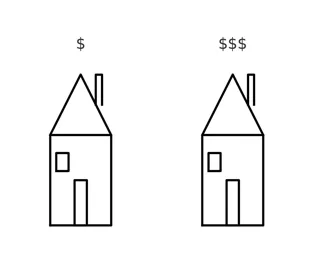
My appraiser is advocates for me.
Yes & NO... In some states this is true however in others such as Colorado, it is not true.
In Colorado Appraisers must be impartial. — not biased toward either party. The carrier's appraiser nor the insured's appraiser can be advocates of the party that hires them.
How does that work? The best appraisers advocate for a fair award which is based on restoring your home to pre-loss condition. Advocating for the carrier or insured is not necessary to get a fair award. Being skilled, having a plan of action that is executed successfully is almost always necessary.
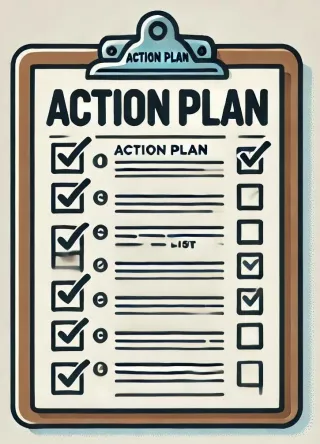
Neither your contractor nor your appraiser can read your policy.
Not True. In fact, both should read your policy. The best Appraisers obtain the policy and read it. It's considered by the industry to be APPRAISAL BEST PRACTICES.
Appraisers musty read your policy because it provides the terms of appraisal. If your appraiser does not read your policy, they could jeopardize the award, and you could spend your hard-earned money for nothing.
The policy provides the appraisers the Rules! What can and cannot be done and how it is to be done.
Appraisers are tasked with providing an award detailed and categorized so that the carrier can apply coverage, apply the policy to the award. To do this the appraisers should be categorizing the loss so that the carrier can do this, which means reading the policy and determining what categories are to be used.

Why am I at an impasse? Why doesn't my carrier agree with my costs?
Often the disputes, the impasse, the differences between the insured and the carrier, that cause a claim to go to Appraisal can be boiled down to the insured has not proven their estimated costs are reasonable.
Part of doing that is categorizing the loss so that the Carrier can apply coverage.
The best appraisers will determine what is damaged, what the materials are, what methods are best for restoring the useful life of those materials, if the useful life can be restored or does the damage warrant replacing the material, and the costs associated with the restoration's operations. THEN, once the appraiser has a solid position, they must prove it is reasonable to the opposing appraiser and or the umpire if the two appraisers cannot agree,
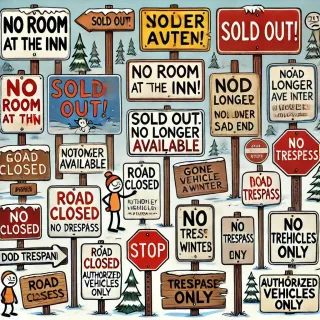
Appraisal means guaranteed payout.
There are no guarantees. No one can guarantee and outcome or an award amount.
The best appraisers will be able to review your claim components and provide you with potential positions. The positions an appraiser takes should be sound and not a wish list.
Often appraisers know propensities of certain carriers, especially those that may try to choose a biased appraiser or umpire to gain an advantage and relay that information to you before you invoke appraisal.

Insurance Appraisal or Lawsuit?
It Depends. The truth is not universal. The policy you purchased and the insurance company you purchased it from have a lot to do with whether an insurance appraisal is a good idea or a bad idea.
Some policies are not well suited for appraisal.
Some claims are not well suited for the courts.
You should always interview a few attorneys when deciding whether to invoke an appraisal or file suit against the insurer.
Some policies are written by the carrier to discourage the insured from appraisal and in that situation, it would depend on your claim. Other policies are written to advantage the insurer and for those policies, most legal minds would recommend suing the insurance company when you are at an impasse rather than invoking appraisal.
What if you decided not to invoke appraisal and not to hire and attorney and just take your lumps?
This could be even worse.
Real Story (abbreviated): Insured accepted the insurance company's settlement, did the work the way it was estimated by the insurer and still lost nearly $60,000 because 4 years later the insurer threatened to cancel their policy if the homeowner didn't replace their siding. All because they accepted the settlement and did not restore their home properly.
All three options come with risk, knowing the facts, knowing the odds, knowing the ramifications of whether you stay or move forward is an important factor when making your informed decision.
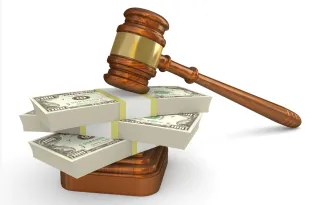
Who Pays for my Appraisal
In most states each party pays their own appraiser... you, the insured, pay for your appraiser and the carrier pays for their appraiser.
Are there other costs? There can be. Most policies state that if there are other reasonable costs, they are split between the carrier and the insured and the same is true for the umpire fee, if the umpire is needed.

How Much does an appraisal cost?
It Depends. Some insureds seek out the least expensive, though the Latin phrase Caveat Emptor comes to mind... buyer beware. Ever hear, you get what you pay for?
Do you want the least expensive surgeon operating on your heart or brain? Most of us want the best.
Don't be the insured that pays an appraiser a flat fee of $500 and gets an award commensurate with that fee, thousands of dollars less then they needed.
The fact is the best appraisers often charge higher fees. Those same appraisers will be honest with you about the potential position they would take and the likelihood or odds of success. Good professional ethical appraisers will not take an appraisal unless the value for the insured is there.
True Life Example: Two houses in the same HOA on the same block built the same year both damaged by the same storm, and both were appraised. One appraiser was certified and the other was not. One appraiser had a plan of action and the other did not. One owner wanted their home restored properly, the other didn't know the difference. One chose an appraiser carefully, the other didn't. One appraisal resulted in a fair award of over $90,000... and the other was awarded less than $40,000.
If you don't care, then both were successful. If you are adamant about your home being properly restored, then choose your appraiser wisely. The story is not about an insured getting way to much or way to little, the story is about what really happened and means understanding what you want from an appraisal is very important.

Is Timing Important
Timing is absolutely critical to an appraisal. The timeliness of a demand for appraisal or invoking appraisal is crucial. An appraisal request must be made within a "reasonable time," though the specific time period can vary. Courts generally consider whether the insurer's participation in the process is impaired by the delay; whether good faith negotiations took place before a demand was made; and whether the demand for appraisal was proper under the circumstances. Unreasonable delays may be considered a waiver of the right to appraisal.
Just as important is if the insured waits too long to invoke an appraisal and by the time the appraisal award is agreed to a policy may make the point moot. The best appraisers will explain this in detail if your situation has time concerns.

Can my appraisal be overturned, be invalid?
Appraisal awards are generally binding but can be vacated by a court under specific circumstances. These usually include if there was evidence of fraud or misconduct by an appraiser or umpire, if the award was not made in accordance with the terms of the insurance policy, if the appraisers or umpire acted outside the scope of their authority, or if the award is the result of bias or corruption. The burden of proof to vacate an appraisal award is exceptionally high, and most awards are upheld.
Choosing the right appraiser is important.

What Is an Insurance Appraisal?
An insurance appraisal is a formal dispute resolution process included in many property insurance policies.
You and your carrier's adjuster are at an impasse. The claim is stalled. You want to invoke appraisal.
Here's how it works:
• You and your insurance company each select an appraiser.
• Both appraisers evaluate the loss and attempt to agree on the value (resolve your differences).
• If the two appraisers can’t agree, an impartial umpire is engaged to help the two appraisers resolve their differences and make an agreement which is called an award.
This process allows claim disputes to be resolved without going to court, often saving time and money for everyone involved.

The Appraisal Process
Appraisers are not in this to “win” — Appraisers are here to determine a fair value. Appraisal is an attempt to avoid the insurance company paying more than they should while paying the insured enough to properly restore their home.
Insurance appraisal, in many states and especially in Colorado, isn’t about taking sides or advocating for either side;
it’s about arriving at a fair award.
My Process:
🔍 Step 1: Reviewing Your Policy & Claim
We start by diving deep into the details — reviewing your insurance policy, the claim you filed, the carrier’s response, and all estimates. Then we schedule a meeting, a call where we discuss the potential of an Appraisal, all of your options, and a possible game plan.
📘 Step 2: When I am Selected
Prepare for likely scenarios based on what is known about the claim, the insurer, and policy. Create an action plan.
Prepare, Prepare, Prepare.
🤝 Step 3: Start Executing the Plan
Clear communication is key. Professional, respectful coordination with the insurance company’s appraiser. Exchange disclosures, review disclosures and documents provided by my counterpart. Provide vetted Umpire candidates and review and interview my counterparts Umpire candidates. Execute the game plan. Inspect and work with our counterpart to resolve as many issues and differences as possible. Our goal isn’t conflict — it’s collaboration and resolution where possible. Engage the Umpire only if necessary and if it's part of our plan.
🗂️ Step 4: Preparing Strong, Defensible Documentation
We build an appraisal position based on facts and what is reasonable — not relying on opinions. That includes onsite inspections, create repair defensible estimates, provide proof that the position is reasonable with photos, expert opinions, code and manufacturer's references. Everything within my appraisal position is designed to hold up under scrutiny, whether from the opposing appraiser or an umpire. The key... communicate the reasonableness of my position.
⚖️ Step 5: Working Toward a Fair Appraisal Award
The ultimate goal is to agree on a fair settlement without the need for an umpire. But if an Umpire is needed, I'm fully prepared to support my position with clarity and professionalism and in a way that is compelling.
The Appraisal Process
We’re not in this to “win” — we’re here to help guide you through a fair and transparent process. Insurance appraisal isn’t about taking sides; it’s about arriving at an impartial, well-supported decision. Here's how we help make that happen:
🔍 Step 1: Reviewing Your Policy & Claim
We start by diving deep into the details — reviewing your insurance policy, the claim you filed, the carrier’s response, and all estimates. Then we schedule a meeting, a call where we discuss the potential of an Appraisal, all of your options, and a possible game plan.
📘 Step 2: When I am Selected
Prepare for likely scenarios based on what is known about the claim, the insurer, and policy. Create an action plan.
Prepare, Prepare, Prepare.
🤝 Step 3: Start Executing the Plan
Clear communication is key. Professional, respectful coordination with the insurance company’s appraiser. Exchange disclosures, review disclosures and documents provided by my counterpart. Provide vetted Umpire candidates and review and interview my counterparts Umpire candidates. Execute the game plan. Inspect and work with our counterpart to resolve as many issues and differences as possible. Our goal isn’t conflict — it’s collaboration and resolution where possible. Engage the Umpire only if necessary and if it's part of our plan.
🗂️ Step 4: Preparing Strong, Defensible Documentation
We build an appraisal position based on facts and what is reasonable — not relying on opinions. That includes onsite inspections, create repair defensible estimates, provide proof that the position is reasonable with photos, expert opinions, code and manufacturer's references. Everything within my appraisal position is designed to hold up under scrutiny, whether from the opposing appraiser or an umpire. The key... communicate the reasonableness of my position.
⚖️ Step 5: Working Toward a Fair Appraisal Award
The ultimate goal is to agree on a fair settlement without the need for an umpire. But if an Umpire is needed, I'm fully prepared to support my position with clarity and professionalism and in a way that is compelling.


© 2025 Hcounter Corp dba IPLappraisal - All Rights Reserved.